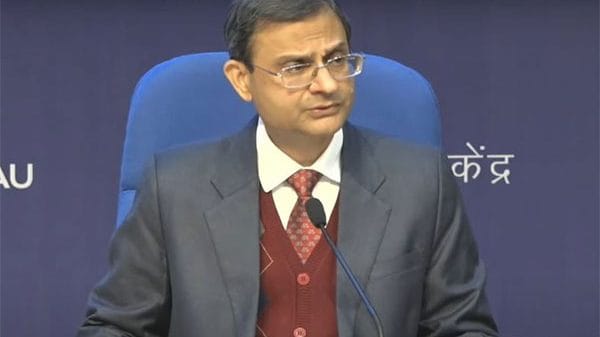New Delhi: Career civil servant and Princeton graduate Sanjay Malhotra, who is set to take over as governor of the Reserve Bank of India (RBI), has been a vocal proponent of prioritising the economy’s interests over revenue considerations, and has a “good working relationship” with Finance Minister Nirmala Sitharaman.
The Appointments Committee of the Cabinet Monday announced Malhotra as the new RBI governor for a period of three years starting 11 December. Current governor Shaktikanta Das will see his six-year term come to an end Tuesday.
Malhotra’s appointment reinforces the government’s increasing preference for former civil servants as chief of the central bank.
Malhotra is a 1990-batch officer of the Indian Administrative Service (IAS) of the Rajasthan cadre. He completed his B.Tech in computer science and engineering from IIT Kanpur in 1989, following which he completed his Masters in Public Policy from Princeton University.
“He is a very competent officer and was in the Department of Financial Services (DFS) before he moved to Revenue, so he is well-versed with the banking and financial sector, apart from his other areas of expertise,” a senior official in the Ministry of Finance told ThePrint.
“He has also worked with the finance minister for more than two years, since the time he joined DFS in February 2022, and they have a good working relationship,” the official added.
Prior to joining the finance ministry, Malhotra was the chairman and managing director of REC Ltd, a post he held since November 2020. Before that, he was an additional secretary in the Ministry of Power. Previously, he has held the post of principal secretary in charge of the energy department of Rajasthan.
The official in the ministry further told ThePrint that it was a “fair assumption” that Malhotra’s appointment was a sign of the Narendra Modi government doubling down on its policy of not appointing “outside” economists as head of the RBI.
After contentious relationships with both Raghuram Rajan and Urjit Patel, the two RBI governors in the first 5 years or so of the Modi government, the Centre appointed Shaktikanta Das in December 2018. He had retired from the Ministry of Finance as Economic Affairs Secretary a few years earlier, and had been a member of the Fifteenth Finance Commission and India’s G20 Sherpa since then.
‘Economy over collection’
Malhotra has, in the recent past, given some interesting advice to tax officials. During a speech last week, he urged revenue officials to prioritise the interests of the economy over collection efforts. This, at a time when complaints of “tax terrorism” have increased among individuals as well as companies.
“If in the process of garnering some small revenue, we are hurting the whole industry and economy of the country…that is certainly not the intent,” Malhotra said while speaking at the 67th annual day of the Directorate of Revenue Intelligence (DRI). “Revenue comes in only if there is some income and so we have to be very cautious that in the process, as they say, ‘Do not kill the golden goose’.”
As revenue secretary, Malhotra also talked about the need to balance tax reform with stability. “We introduced major changes in the personal income tax last year,” he said in an interview to The Indian Express in February. “Major change in corporate tax in 2019. So, tax certainty and stability is also very important. Keeping that in mind, to expect major changes every year in the Budget on the taxation side is not correct.”
Also read: Shaktikanta Das has handled govt better than rockstar RBI chiefs. The real test is now
Challenges ahead
The new governor will take charge of the RBI at a particularly tricky time, when the central bank has to manage the dual imperatives of bringing down inflation to the 4 percent target and boosting economic growth which slumped to 5.4 percent in the second quarter of this financial year.
The RBI had, under Das, raised the policy repo rate to 6.5 percent in February 2023 and had kept it unchanged 11 times since then, the latest occasion being last Friday’s decision to not lower rates.
This latest decision came despite both Commerce Minister Piyush Goyal and Sitharaman’s utterances in public that lower interest rates were needed to boost growth.
(Edited by Tikli Basu)
Also read: Individuals, businesses are increasingly defaulting on microloans. Both lenders & borrowers at fault






